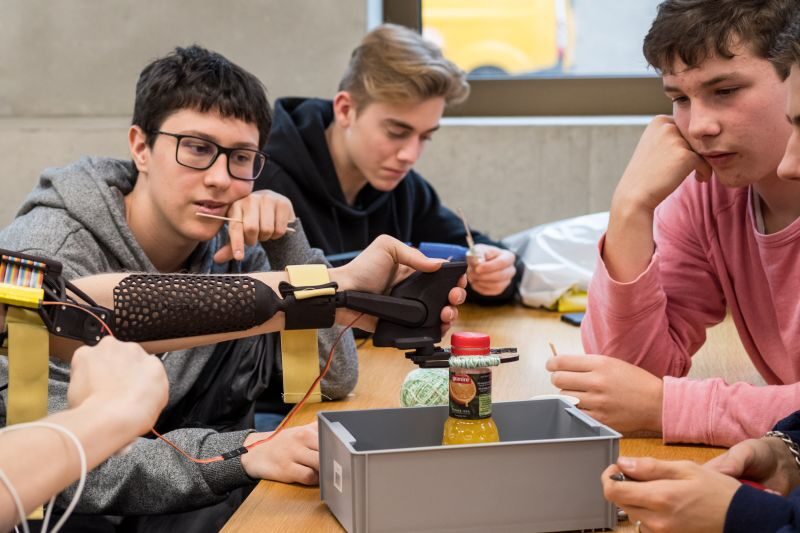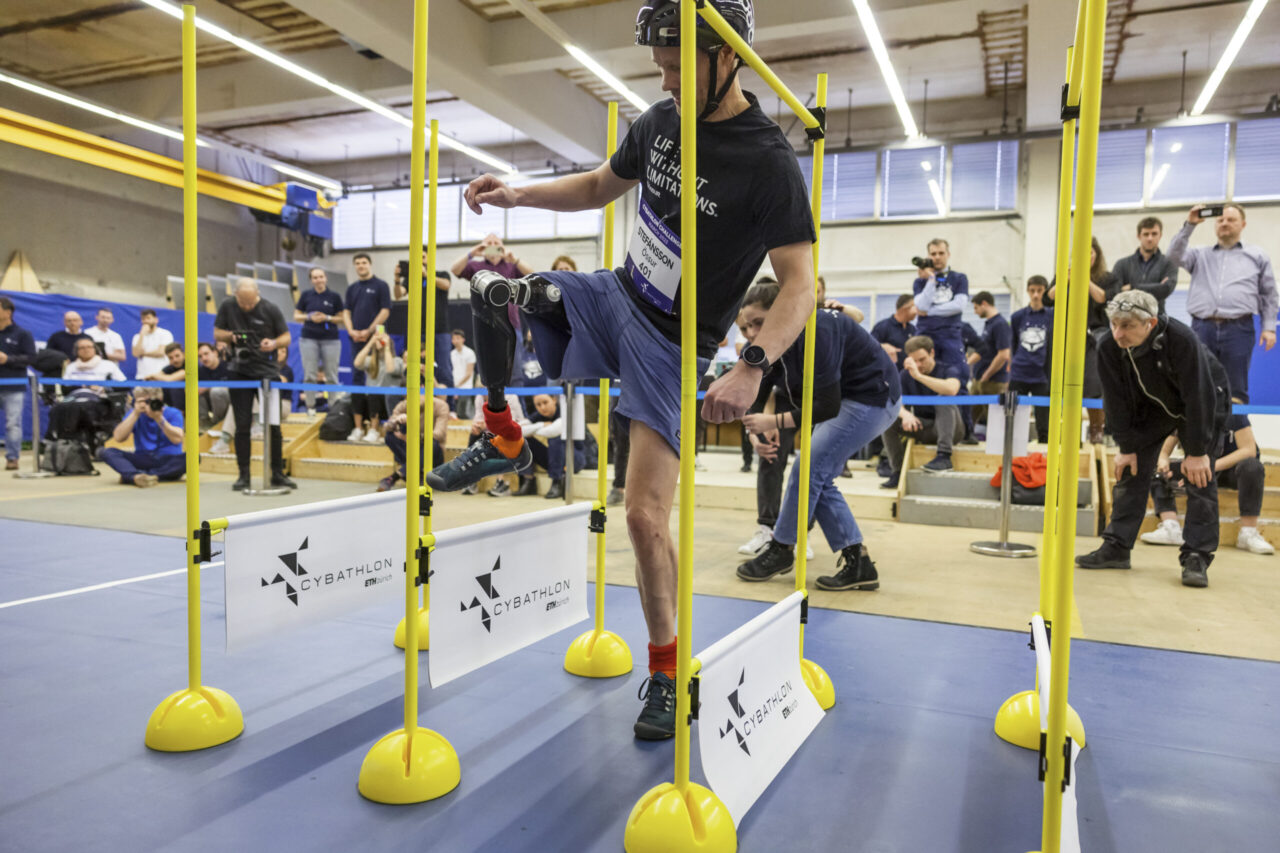Bridging the gap between engineering and art has always been an aim of my graduate studies. I had the privilege to work with the Autonomous Systems Lab at ETH Zurich and collaborate with the famous artist duo Pors & Rao for my semester thesis. Pors & Rao create interactive artworks that capture a viewer’s attention and make us question our understanding of the world. As part of my semster thesis, I created an interactive installation that presents as an illusion on a wall in a dark exhibition room. In engineering language, this means that the system should be able to detect and track the position of a human head in a dark room.
Melding of the Minds – Engineer Meets two Artists
by Chi-Ching Hsu, Engineering Student, 25 June 2020
Engineering and art often occupy different ends of a spectrum, but this might not be true at all. Here is a story of an enriching collaboration between an engineering student and two artists.
From nothing to something
At the very beginning, I did not really know what I was getting myself into in melding my engineering skills with art. Aparna Rao, co-founder of the Bangalore-based art duo and also an artist in residence at Wyss Zurich, encouraged me along the journey saying, “Motivation and passion are the most important ingredients in cultivating artworks.” I decided to work on this project and push the boundaries of my comfort zone.
Bridging perspectives
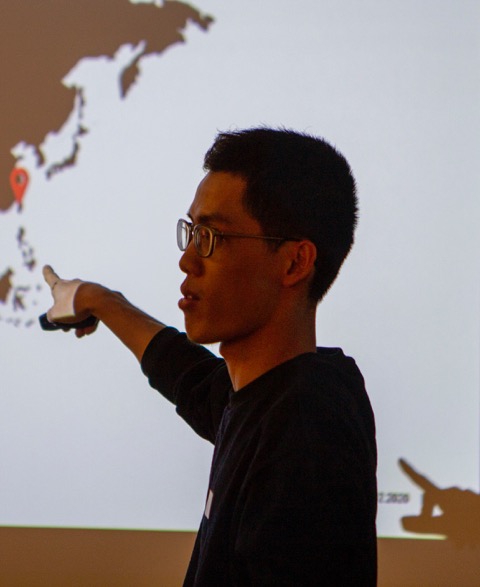
Presenting my work at the “Artist and Robots”, an event of the Swiss Study Foundation (photo credit: Pascale Speck)
Artists and engineers are often placed on the opposite ends of spectrum between emotion and rational thought and motivation. During the 5-month long project, I participated in two meetings each week - one with the PhD students from the Autonomous Systems Lab and the other with the artists from the studio. The structure and feel of the meetings presented a stark difference. For example, from the engineering side, the lab meetings focused on trying out state-of-the-art methods, even if it might look primitive or not robust. On the other hand, from the artists’ point of view it would be good to have a robust method and then optimize it to work reliably for an exhibition in a museum. In the end, I experimented by applying two different approaches and comparing their performance.
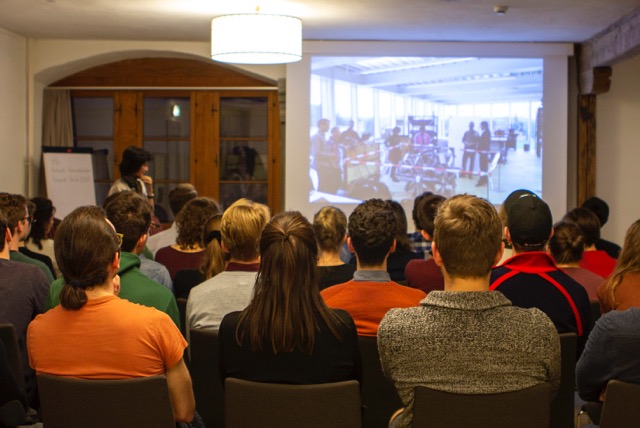
Artist Aparna is sharing her artworks with students (photo credit: Pascale Speck)
Two things I learned
I learned a lot by engaging this project and here are some points that I would like to share with you: First, know yourself and follow your passion. Understanding yourself and knowing what you really want is one of the fundamental questions of life. In fact, some people might spend their whole lives searching for an answer. However, once you know who you are and find your passion, you are, without doubt, invincible. Every time I see people that devote themselves to a field they love, they shine like a sun. Last, I believe curiosity is a key element in maximizing life experiences. I try, as much as possible, to study abroad. A life full of unknowns is always a bit daunting, yet a life without curiosity is not worth living.
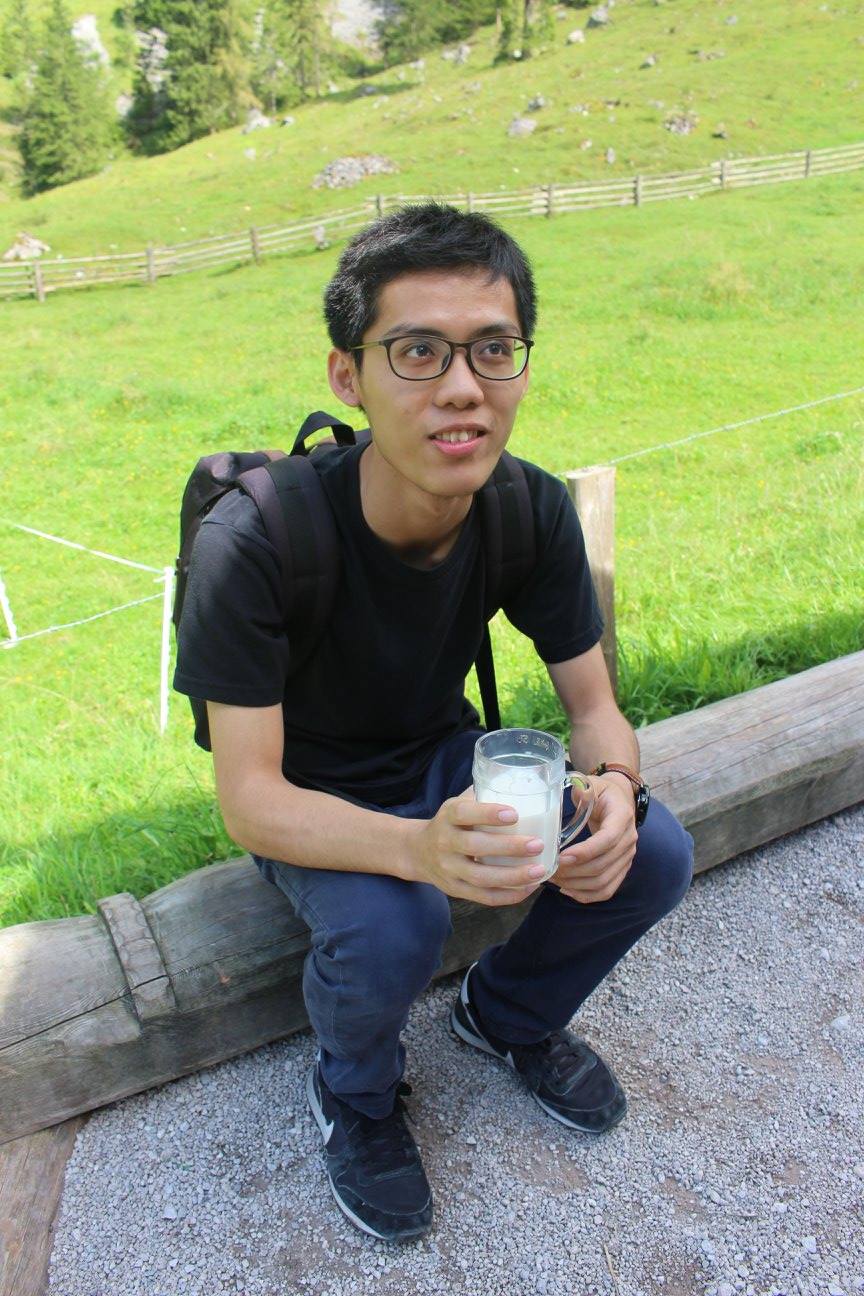
About the author
Chi-Ching Hsu is a Master's student of Robotics, Systems and Control at the Department of Mechanical and Process Engineering, ETH Zurich.




